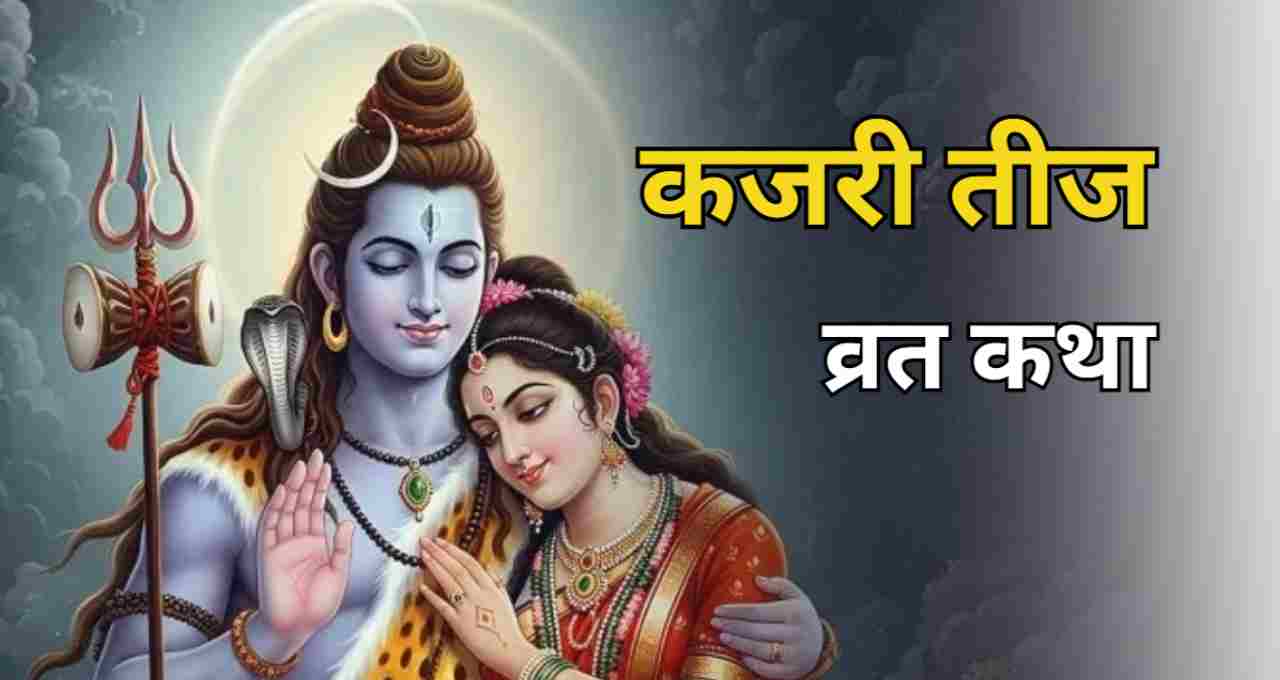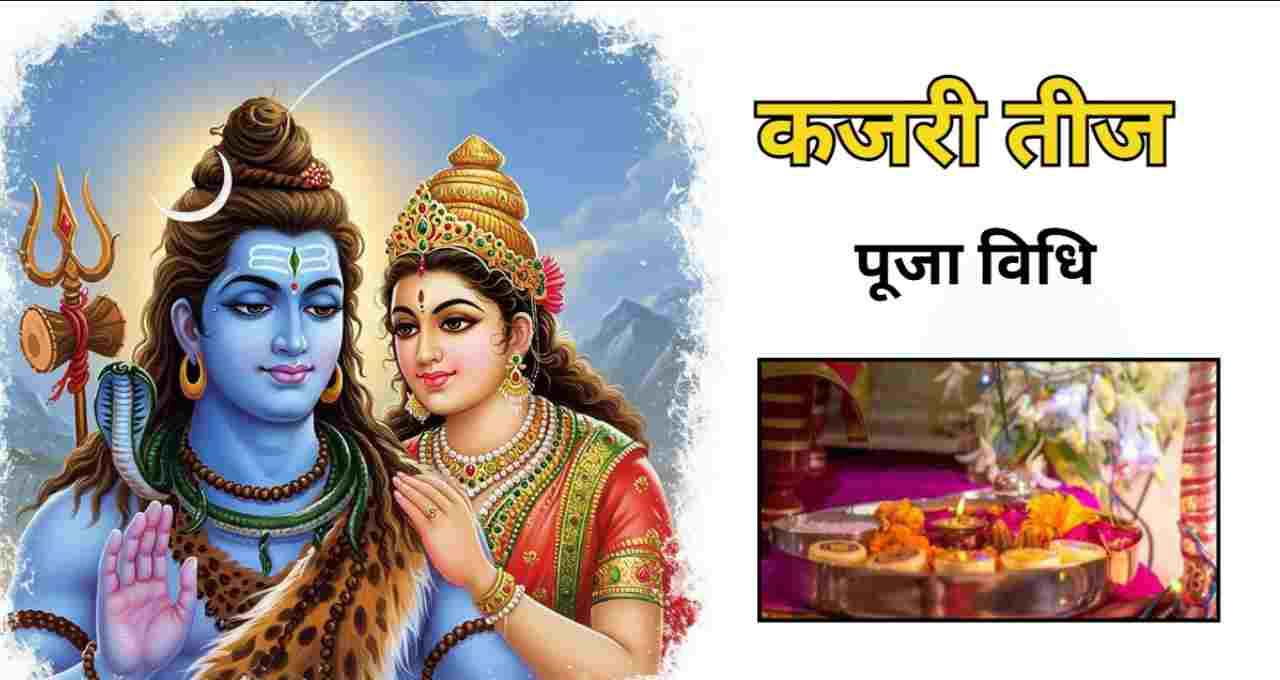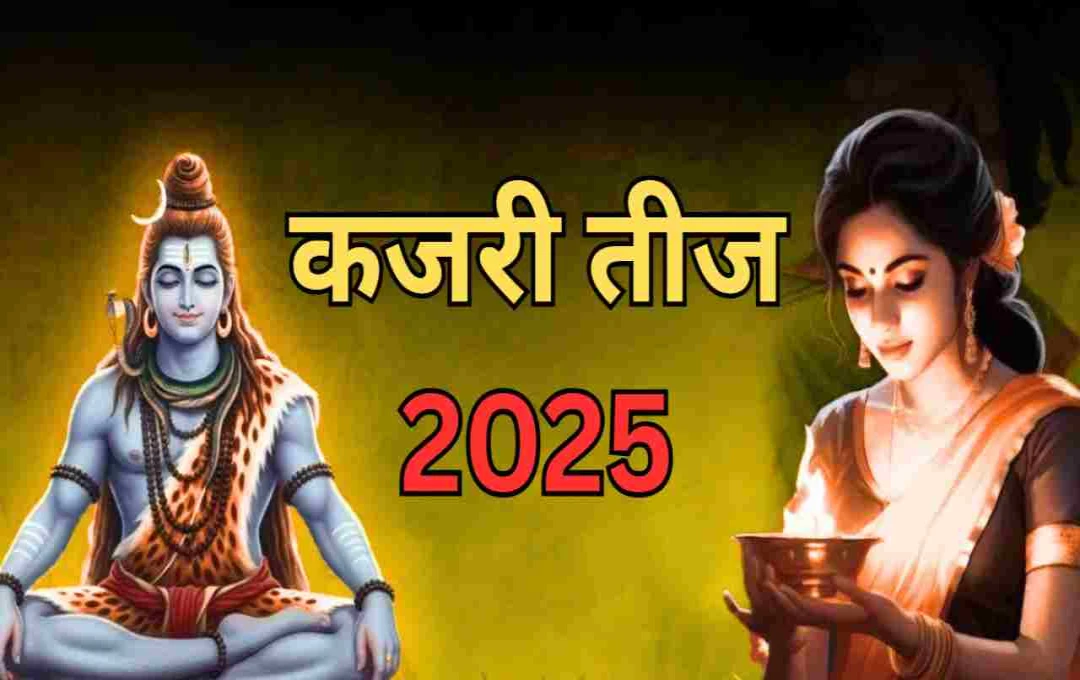Kajari Teej, also known as Boodhi Teej or Satudi Teej, is a very special festival for married women. This fast is observed for the long life, prosperity, and happiness of the husband's married life.
Kajari Teej 2025: Today, August 12, 2025, the holy festival of Kajari Teej is being celebrated with great fanfare in many states of North India, including Uttar Pradesh, Bihar, Madhya Pradesh, and Rajasthan. Known as Boodhi Teej, Satudi Teej, and Kajali Teej, this fast is a symbol of unbroken good fortune and a wish for the long life of the husband for married women. Throughout the day, women worship Lord Shiva and Goddess Parvati, observe a fast without water, and listen to the Kajari Teej Vrat Katha, which is considered incomplete without listening to it.
Importance of Kajari Teej
Kajari Teej is celebrated with great joy and devotion in many states of North India, including Uttar Pradesh, Bihar, Madhya Pradesh, and Rajasthan. This festival comes after Hariyali Teej and falls in the holy months of Sawan and Bhadrapada. Especially married women keep fast on this day for the long life, good health, and happy married life of their husbands. It is religiously believed that worshiping Lord Shiva and Goddess Parvati maintains love, harmony, and happiness and prosperity in the married life and in the family.
Kajari Teej Vrat Katha

In ancient times, a very poor Brahmin couple lived, whose life was going through great difficulties. On the day of Kajari Teej, the Brahmin woman asked for gram flour (sattu) for worship, but there was barely enough to eat at home and the husband did not have even a single penny. Seeing the wife's faith and insistence, the Brahmin decided that he would gather the ingredients by any means. At night, he secretly went to the moneylender's shop and took gram, ghee, and sugar from there. The moneylender caught him and asked the reason. The Brahmin humbly explained his poverty, his wife's faith, and the importance of worship. The moneylender's heart melted at his truthfulness, honesty, and love for his wife. He not only gave sattu but also gifted jewelry, clothes, bridal items, and many other gifts. The Brahmin couple worshiped Kajari Teej with complete rituals and devotion the next day, after which happiness, prosperity, peace, and joy resided in their lives.
Worship Method

In the morning, women take a pledge to fast after bathing. A neem branch is established on a wooden or earthen platform and worshiped as Goddess Parvati. Wheat, gram, sattu, bridal items, and fruits are offered. A fast is kept without water or on fruits throughout the day. In the evening, after listening to the Vrat Katha, Aarti is performed, and finally, the fast is broken by taking water from the husband's hand.
Religious Belief
It is believed that just as the life of that poor Brahmin completely changed with the grace of Kajari Mata and happiness and prosperity resided in his house, similarly, women who observe the Kajari Teej fast with a true heart, unwavering faith, and complete devotion also receive the blessings of the Goddess. By this fast, married women attain unbroken good fortune, long life of the husband, and love and harmony in married life. Also, it is believed that this fast brings peace, wealth, grains, and positive energy in the home and family, which maintains lasting happiness in life.












